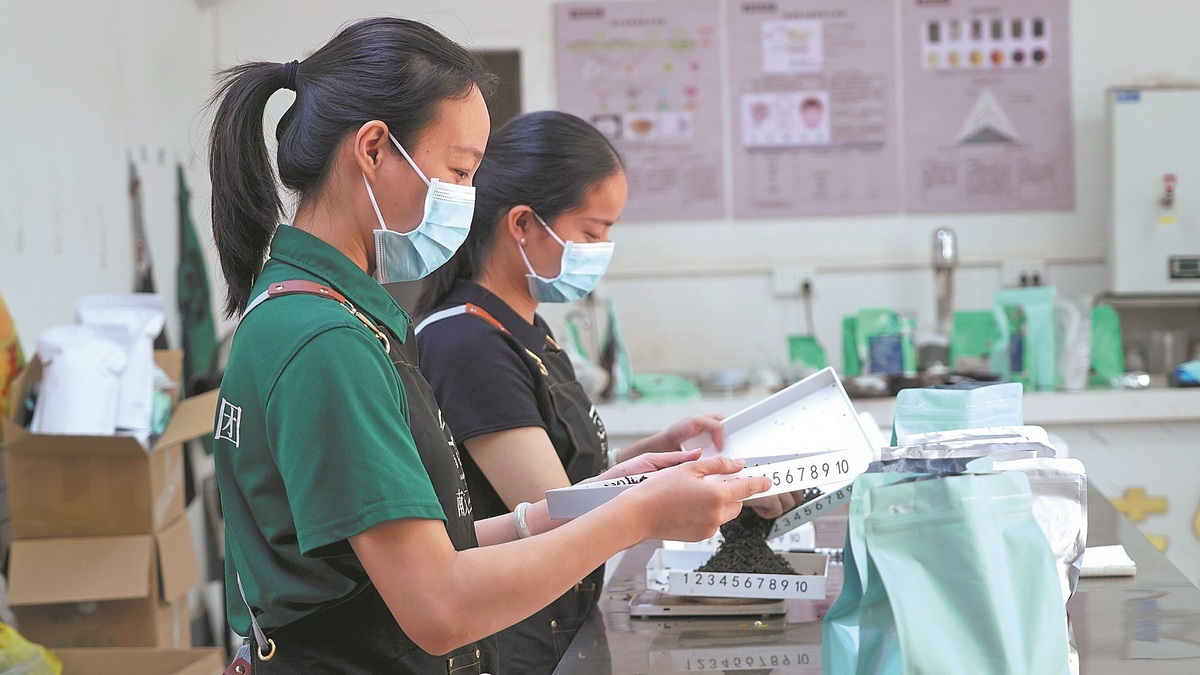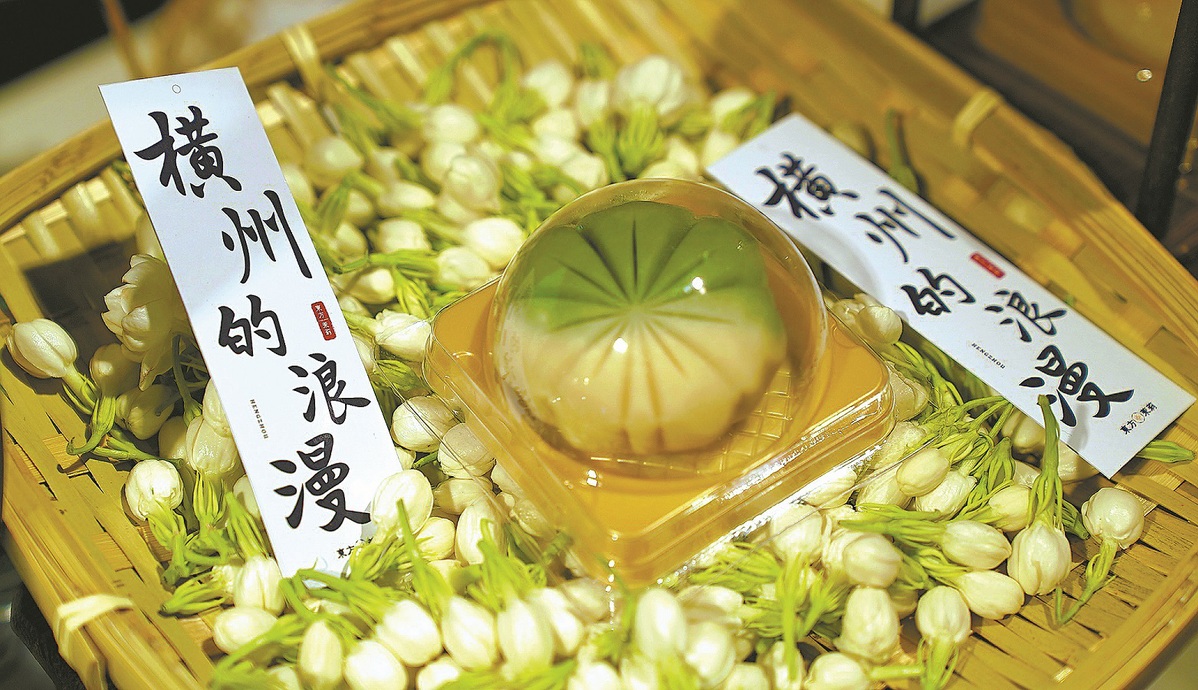Hengzhou's jasmine flower industry now in full bloom
From special drinks to high-tech AI cultivation, city reaps agricultural benefits


Diversified products
In 2024, Hengzhou's jasmine industry reached new heights. The city produced over 110,000 tons of fresh flowers, with prices averaging a record 50 yuan per kilogram.
The total output value of the jasmine sector surpassed 18 billion yuan, while the brand value of Hengzhou's jasmine flowers and tea reached 22.4 billion yuan, data from city authorities showed.
These positive figures not only reflect the enduring vitality of jasmine cultivation, but also highlight the growing popularity of derivative products, especially the city's signature jasmine tea.
In 2012, the craft of making jasmine tea was included in the list of intangible cultural heritage representative projects in Guangxi. Xie Dagao, an inheritor and master tea maker, and his fellow artisans continue to preserve the centuries-old craft. Jasmine tea is gaining renewed appreciation among today's consumers especially young people who prefer innovative tea drinks.
Riding this wave of popularity, Hengzhou jasmine tea has seen steady growth in sales across major markets.
In 2024, the city produced 90,000 tons of jasmine tea, up from 80,000 tons in 2022, and reflecting its role as a national leader in both production and quality, according to Lin Jiashuo, head of the Hengzhou Bureau of Economy, Trade and Information Technology.
Jasmine tea exports reach global markets through both direct and indirect channels, Lin said.
Direct exports go mainly to Japan, Malaysia, and Indonesia, while indirect exports are made via trading companies in Guangdong, Fujian, and Zhejiang provinces. The exports are to countries like Iraq, Germany, France and Italy, he said.

Currently, 17 local enterprises are registered for foreign trade, with annual exports exceeding 3,000 tons, data showed.
Feng Wenzhen, CEO of Longshengyuan Tea, one of the export companies, said: "We export assorted tea products. Our markets include the United Kingdom and Australia, with a large volume going to parts of Africa."
"There's especially strong demand from Southeast Asia for raw tea materials used in trendy tea drinks," she said.
"Some European Union consumers are already enjoying our tea, though volumes are still modest," Feng added. "We're expanding our export range and hope to bring more premium teas to global markets, especially the EU, in the next five to 10 years."
To meet rising international demand and ensure consistent quality, more companies are turning to automation and innovation.
At the Yuanye Jasmine Tea and Tourism Industrial Park, Guangxi China-Kenya Tea Industry Co is piloting its second-generation fully automated production line. Inside the sealed facility, key steps such as blending and scenting are completed without human help.
"The system offers precise digital control and smart temperature management," said Zhang Yannan, planning director at the company, in an interview with China News Service, adding it boosts scent utilization from under 50 percent to over 80 percent, and improves product cleanliness by 40 percent.
























